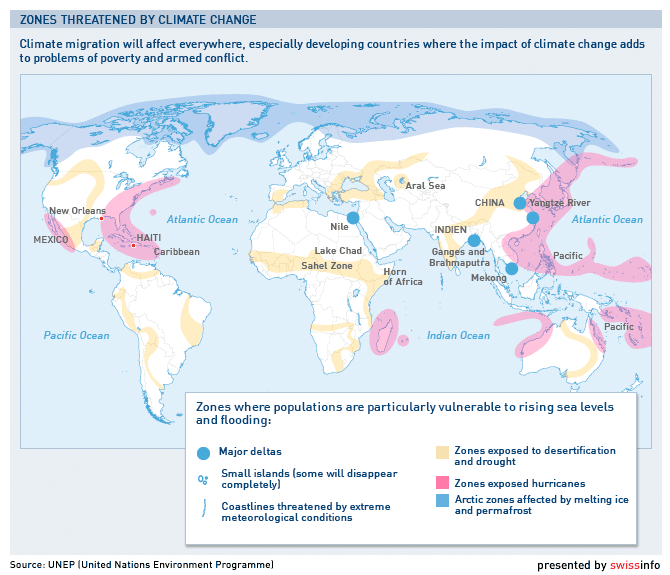
THIS IS NOT MY PLANET
THE FACTS
-
As early as 1990, the IPCC noted that the greatest single impact of climate change may be on human migration - with millions of people displaced. (IOM, 2008)
-
The 2001 World Disasters Report of the Red Cross and Red Crescent Societies estimated there were 25 million climate refugees. (IOM, 2008)
-
A new report conducted by the World Bank estimates that Climate Change will transform more than 143 million people into climate migrants by 2050. (The World Bank, 2018)
-
The three "hot spots" where most of this population shift will take place is in Sub-Saharan Africa, South Asia and Latin America, however it is effecting people all over the world. (The World Bank, 2018)
-
In the last six years, extreme weather alone has forced 2% of the world's population from their homes. (140 million people). Roughly one person every second. (Environmental Justice Foundation, 2018)
-
There is still reason for optimism: if the world acts in time to reduce green house gas emissions and engages in "robust development planning", the flood "climate migrants" could be reduced by 80% to 40 million. (IOM, 2018)
-
Climate Refugees face a lot of problems - one being, protected by international laws. They experience greater political risks. Unlike “traditional” refugees, individuals who are climate refugees have a greater likelihood of being sent back to the homelands or forced into a refugee camp. (Global citizens, 2015)
-
Most displaced people are in the global south. Developing nations host 86% of all recognised refugees.

(Image via International Displacement Monitoring Centre)








Texas homes soak in floodwaters caused by Hurricane Harvey, 2017.
(Image via LM Otero/Associated Press)
Men fish in a partially dried marsh in Hor al-Hammar in southern Iraq, on March 27, 2009.
(Image via AP/Hadi Mizban)

(Image via Nature Climate Change)

